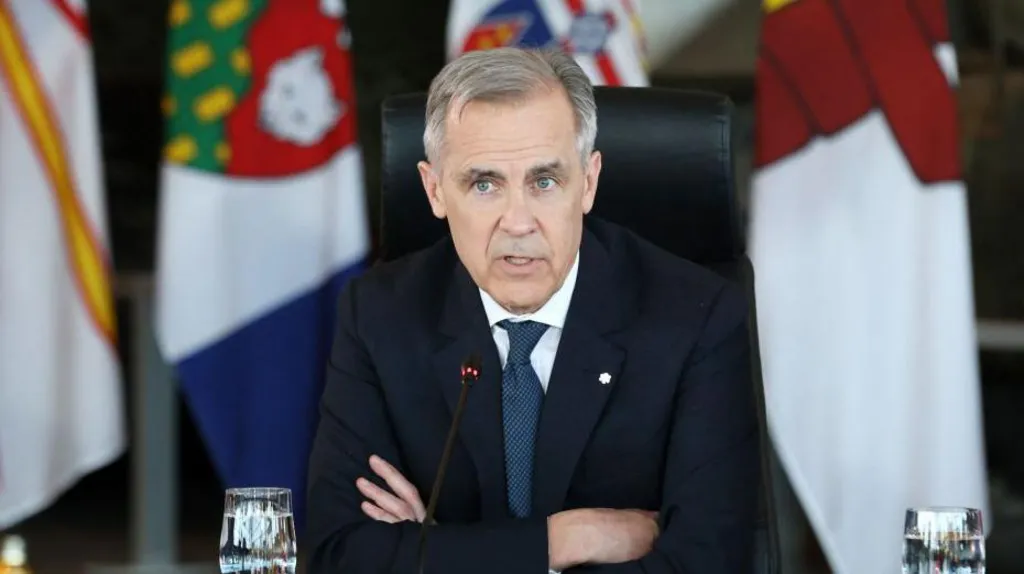
 Getty Images
Getty ImagesDonald Trump raised the matter of making Canada the US's 51st state in a March call with Prime Minister Mark Carney, the Liberal Party leader acknowledged.
The two men spoke on 28 March, the first week of the Canadian election season, but Carney had not previously shared this detail of the call, according to the Globe and Mail.
"The president brings this up all the time. He brought it up yesterday. He brought it up before," Carney said at a Thursday campaign press conference.
Pressed by reporters, he added, "I said that he did. He has these things in his mind. This is not news."
Canada will hold elections on Monday, and Trump's tariff policies and musings about making its northern neighbour part of the United States have become critical issues in the race.
"To be clear, as I've said to anyone who's raised this issue in private or in public, including the president, it will never happen," Carney added.
On Wednesday, Trump said he'd spoken to Carney several times.
"We had a couple of very nice conversations. Very good," he said in response to a BBC question. "But I don't think it's appropriate for me to get involved in their election."
Despite Trump's insistence on staying neutral, he looms heavily over Canada's election.
Since his re-election, Trump repeatedly has mentioned making Canada the "51st state" of America, which rattled Canadian leaders and infuriated residents.
He referred to then-Prime Minister Justin Trudeau as "governor"- the title for the leaders of individual US states.
His talk of a "51st state," coupled with the trade war sparked by Trump's tariffs, has unleashed a patriotic fervour in Canada. Even in Quebec, a province where talk of independence has long simmered, voters told the BBC they wanted leadership that would stand up to Trump.
At a French language debate last week, all four major federal party leaders were grilled on how they would respond to Trump.
Both Carney, who leads the Liberal Party, and Conservative leader Pierre Poilievre, have sought to convince voters that their party is the best choice to address the trade war with the US and guide Canadians through the resulting economic uncertainty.
Trump has placed a 25% tariffs on goods imported to the US from Canada, but has exempted products covered by a North American trade deal known as USMCA. He also hit Canada with global US tariffs on steel, aluminium and automobiles.
In March, when Trump placed a 25% tariff on Canadian-made automobiles, Poilievre delivered remarks "condemning, without equivocation, the unjustified and unprovoked tariffs that President Trump has now announced against our auto sector."
Polling suggests the Liberal Party holds a slight lead over the Conservatives, though the margin is tightening, according to a CBC News poll tracker.
Canadians have shattered early vote records, with more than 7m people casting their ballots so far.
Bernd Debusmann contributed to this report.